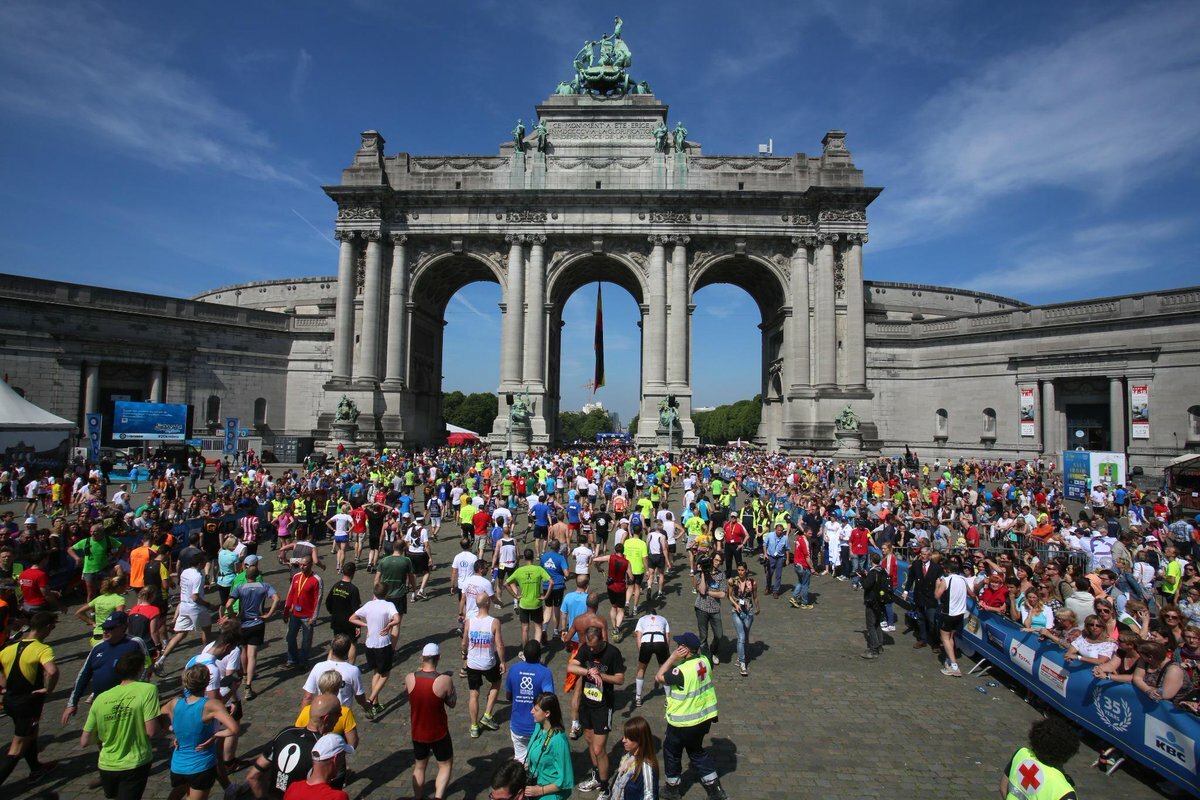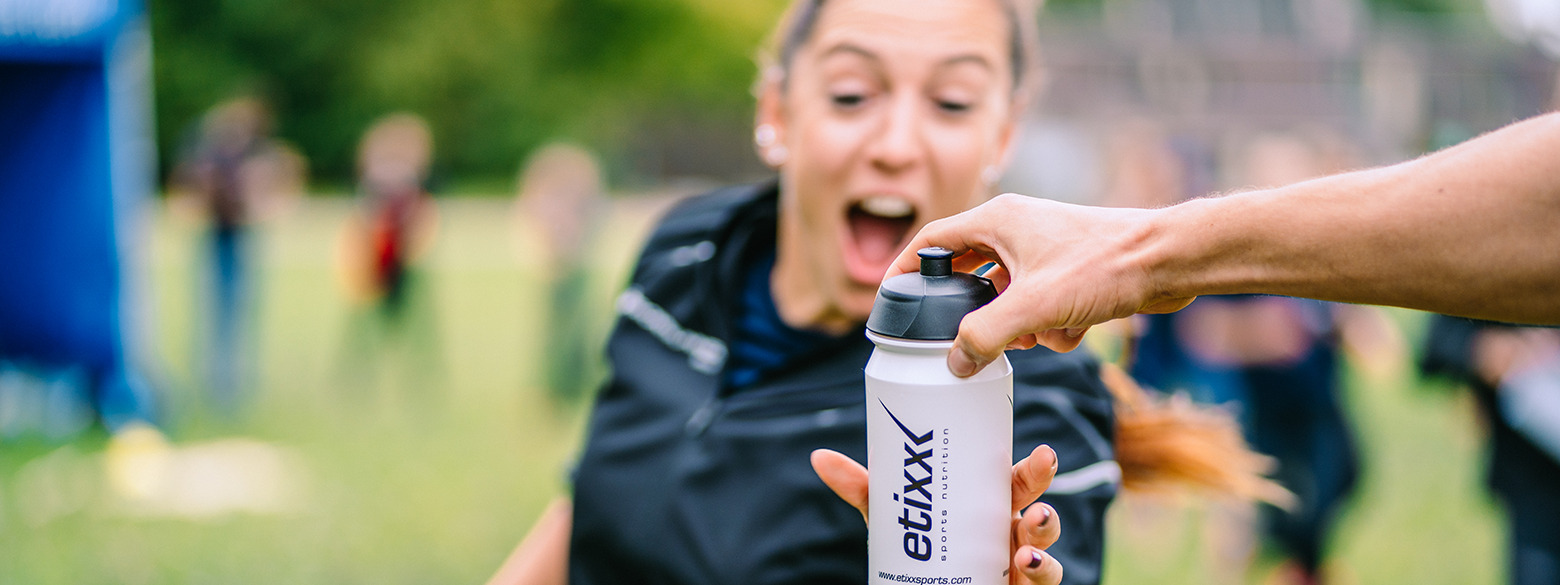How can I best prepare for the 20km through Brussels?
Friday 06 November 2020

Next Sunday, the 20 km through Brussels is scheduled. If the weather forecast is to be believed, the race will again take place under the same conditions as the Ten Miles a few weeks ago in Antwerp. High temperatures and lots of sunshine are again predicted. Many runners at the start of the Ten Miles did not reach the finish line and 60 of them were even taken to hospital with severe dehydration symptoms. To avoid such situations on Sunday, in this blog we take a closer look at the 2 biggest causes why so many runners did not survive the Ten Miles.
Cause 1: Exhaustion
Many runners who have participated in the Ten Miles have not adequately prepared their bodies to sustain such a prolonged intensive effort. Logically, training is the basis for this. It is now well too late for training schedules, but what we can still help you with is some important points of attention the days before the start.
In the days before the race, carbohydrate intake is especially important to ensure that your muscles have enough reserves to start the effort. The days before the race, choose mainly fast and semi-fast carbohydrates such as pasta, rice, ripe banana,... The aim here is to aim for an intake of 10g of carbohydrates per kilogram of body weight the day before the race. One product within the Etixx range that can help you do this is the Carbo-Gy. Carbo-Gy is a carbohydrate-rich energy drink and ideal to use before exercise to increase carbohydrate intake. 500 ml of Carbo-Gy provides 66 grams of carbohydrates. This can be taken the day or 2 days before the race. Especially the meal before the race (half-dose 250ml), the Carbo-Gy can help increase carbohydrate intake. This will ensure that your carbohydrate reserves are sufficiently replenished, making you less likely to encounter the man with the hammer during exercise. During exercise, it is of course also important to pay sufficient attention to this. This can be done with gels, gummies, bars,... You can find more information about this in the blog 'How many carbohydrates should I consume during exercise?
Cause 2: dehydration
A second major cause why many runners have had to end the Ten Miles early is dehydration. This involves not only fluid intake during exercise but also fluid intake before the race (pre-hydration). Our muscles consist of 75% water and this is also the reason why an athlete may experience performance loss if he/she does not drink enough. Studies show that even at a sweat loss of 2%, a drop in performance level is noticeable. Hydration is directly proportional to exercise tolerance so we can easily conclude that drinking improves performance. Sweat loss of 4% can even cause dizziness and/or balance disorders. These are symptoms experienced by many runners on the Ten Miles
It is important to drink enough before exercise. Prehydration starts as early as the day before exercise consists mainly of water. A tip to determine whether you are sufficiently hydrated is to check your urine colour. If you have a dark yellow urine, it means you have not drunk enough. In turn, a light yellow colour refers to sufficient fluid intake. This prehydration continues the day of the race and consists mainly of water. 10 to 15 minutes before the warm-up or the start you drink 250 - 30 0ml Isotonic (isotonic sports drink). You also keep drinking this drink in sufficient quantity during the effort. The reason for this is because the Isotonic provides carbohydrates (energy) and minerals in addition to moisture. If you will only drink water during the 20 km run through Brussels, this might provide you with fluids but not energy. As mentioned above, supplementing carbohydrates during the race is also crucial. In addition, water does not contain minerals and these absolutely need to be replenished during exercise and especially in hot sunny temperatures.
Besides fluid, an athlete also loses many minerals (electrolytes such as sodium, potassium, calcium & magnesium) during sweating. Sodium, for example, is crucial for retaining fluid in the body, making dehydration less likely to occur in the body. In hot temperatures, athletes lose more sweat to control body temperature. More sweat logically also results in more loss of minerals and these absolutely need to be replenished as a result. Moreover, a lack of minerals during exercise can prevent certain general functions in the body from functioning optimally and cause muscle cramps, among other things. The Sport Hydro Tab is the product that can help you replenish these minerals during exercise. This is an effervescent tablet in raspberry flavour and contains the 4 minerals we lose during sweating.
What many are not yet familiar with is the Etixx Sport Hydro Tab - ideal for also replenishing necessary minerals in hot weather.
Be sure to take a Sport Hydro Tab with you on Sunday to add to your water bottle during the 20 km through Brussels, as the warm predicted temperatures will cause a lot of fluid loss. Even in preparation, it is recommended to already take a Sport Hydro Tab. This can be done a few hours before the start.
The entire Etixx team wishes all runners who will brave the hot temperatures on Sunday the best of luck. #FuelYourGoal


